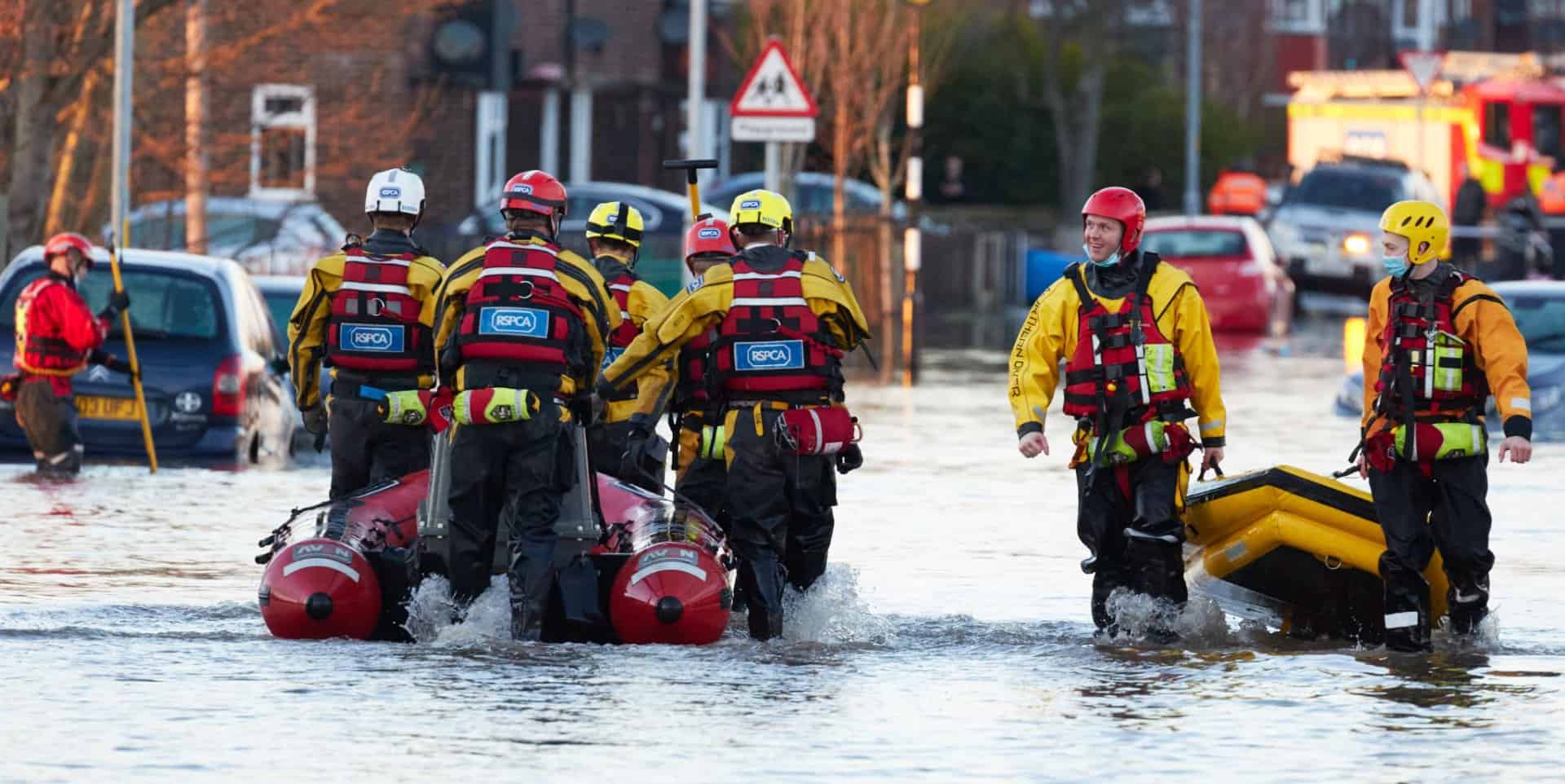Although this advice from the RSPCA is more relevant for other areas of the UK that will be impacted more than the Isle of Wight from the approaching storm, we thought the advice would be useful for animal owners on the Island too. Ed
Most parts of England and Wales are likely to experience the storm with the Met Office predicting the worst impacts from Storm Éowyn to be felt early on Friday, with strengthening winds initially in southwestern parts of the UK with accompanying heavy rainfall. This is forecast to quickly spread northeast to other parts of the UK during Friday morning.
Yellow weather warnings predict heavy rain will move from the west to east of England and Wales – bringing strong and gusty winds, expected to reach 50-60 mph (80-96 kph) over exposed coasts and hills, whilst red and amber weather warnings are in place in some locations for Friday (24th January), with wind gusts of up to 90 miles per hour (145km per hour) along the northwest and northeast of England.
A fleet of emergency rescue boats
The RSPCA has approximately 32 specially-trained officers and a fleet of emergency rescue boats that can be launched for water rescues of animals. The water rescue teams are trained to operate in fast-flowing and contaminated water, and can be called upon to assist in rescuing animals, people and provide assistance to communities affected by flooding.
Animal owners are advised to keep an eye on local forecasts and check for warnings, and the animal charity is also calling on people to take immediate action to ensure the welfare of animals – as rising water levels and strong winds take a toll on the natural habitats of wild fowl and other wildlife.
Finch: Act now to ensure the safety of animals
RSPCA Inspector Jason Finch, National Water Rescue Coordinator, said,
“It’s really important we once again help our animal friends get through this bout of bad weather this week, which could possibly lead to flooding and other damage caused by very strong gusts of wind. Animals must not be forgotten as the country prepares for Storm Éowyn.
“Floodwater can rise very quickly so if there is a flood warning in your area then act early – make sure you have a plan so that you know how to get your animals out of danger if the worst was to happen and you found yourself caught up in flooding.
“We have lots of helpful advice and tips available for people to make sure their pets and local wildlife are kept safe, and we’d urge animal lovers to help us by spreading these potentially lifesaving messages.
“In areas affected by flooding owners should be looking to bring small animals inside and move them upstairs, while livestock should be taken up to higher ground with enough supplies for their needs. Horses or livestock in flooded fields is also a big concern whenever there is heavy rain forecast, so while we’ve not had to launch any rescues yet, we are urging pet owners and farmers to act now to ensure the safety of their animals.
“Wild animals can also struggle in stormy weather, but people can help them too. For example, they can leave some extra food out for hungry birds above ground level and even provide shelter for ground-nesting birds.”
RSPCA tips for pet owners during heavy rainfall and flood risk
- Plan your escape route and keep contact details of people who can help you move your animals in an emergency;
- Ensure you can be contacted in an emergency – if you have horses or livestock in field attach your contact details to gates so you can be contacted;
- Make sure you have suitable carriers available for small animals and keep a supply of food in case of evacuation;
- Bring small animals inside and, if possible, upstairs, and move food, bedding etc somewhere dry;
- Put important documents in sealed bag along with photo of pet incase they get lost and ensure microchip details are up-to-date and registered;
- Move livestock and horses to high ground and ensure you have emergency feed and water supplies;
- If you have to leave your animals behind, leave them inside an upstairs room with plenty of food and water. Leave notices on the outside doors to say there are animals inside and contact us or your local Flood Warden immediately to arrange rescue.
Leave it to the experts
If the worst does happen and if flooding does leave animals in danger, members of the public should be careful not to take risks with their own safety by attempting animal rescues.
It is best to leave that to the experts. The RSPCA’s trained officers are equipped to deal with flood-stricken animals and work as part of Defra’s National Flood Response to help rescue stranded animals.
Finch:
Jason added,
“Don’t put your own life or another’s life in danger to attempt an animal rescue and instead call us and other response agencies for help in an emergency.”
Residents can stay informed by calling Floodline on 0845 988 1188 for information and flood warnings 24 hours a day, or visit the Environment Agency website. Wales residents should seek updates from Natural Resources Wales.
To see all RSPCA flood advice for small pets, horses and livestock, see the charity’s guide online.
There’s information on the RSPCA website about what to do if you see an animal in distress.
News shared by Suzanne on behalf of the RSPCA. Ed





